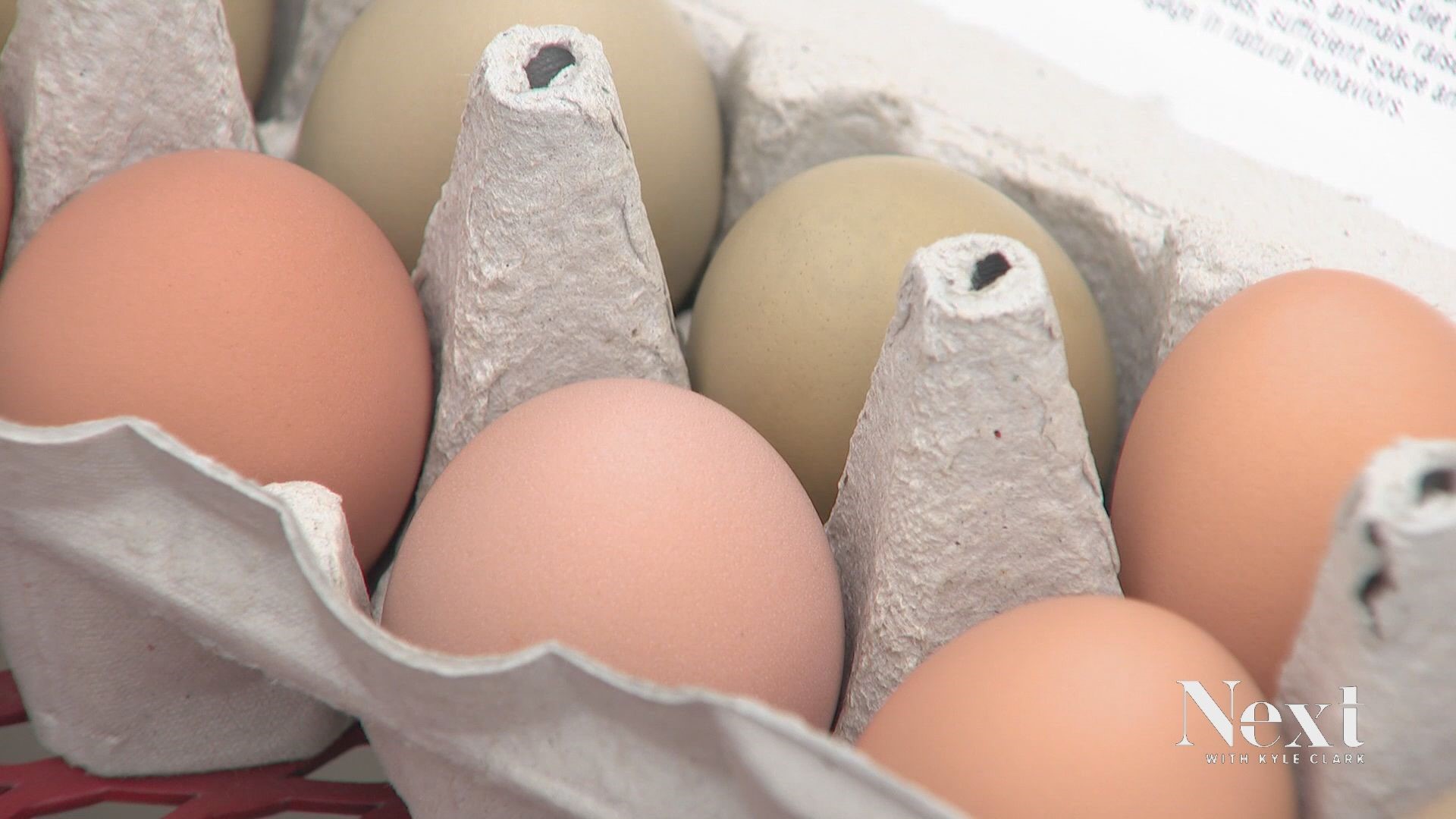BRIGHTON, Colo. — By now you’ve likely noticed it - eggs cost a heck of a lot more than they did last year.
Many have speculated the state’s new law requiring egg-producers to phase in all cage-free environments for hens by 2025 is spiking the cost. That’s not entirely the truth.
The largest driver in the price increase of eggs in Colorado is an outbreak of avian flu, according to those in the know, and in the industry.
“The data that we're seeing coming out of the USDA is really indicating that what they're seeing...this impact on prices that we're experiencing, is really a direct input of the impact of Highly Pathogenic Avian Influenza,” said Hollis Glenn, deputy commissioner of operations for the Colorado Department of Agriculture. “It's a fatal disease for poultry, the laying hens, and the flocks of our producers have been tremendously diminished. So, their ability to produce eggs has been a challenge and when they have an outbreak in their facility, the data that shows that.”
“Supply and demand is really kind of the driving factor on why we're seeing the increase [in prices],” he said.
The change in Colorado law falling during the worst outbreak of avian flu in recent history has created something of a “perfect storm” according to Bill Scebbi, executive director of Colorado Egg Producers.
“Inflation…the cost of fuel…the cost of feed…the cost of labor… all those things that are associated in the production of eggs,” Scebbi said.
Amid recovery from a pandemic and a change in state law, egg producers are also dealing with losses of entire flocks of hens.
“All of our flocks have had to be de-populated… and we are in the rebuilding process,” Scebbi said. “Our farms are getting back repopulating. It takes time for that re-population to happen. Eggs aren’t produced overnight.”
Scebbi said producers should be able to get somewhat back on track by May. He said in the meantime, they’re importing eggs from other states to try to fulfill the demand in Colorado.
The new law, requiring all eggs sold in Colorado to come from hens held by the new law’s standards, makes that a bit more challenging.
“That means we need to start finding eggs to supply the Colorado market from the same type of environments,” he said. “Not every state has the cage free or enhanced environment to bring into Colorado while they’re serving their populations in their own states.”
SUGGESTED VIDEOS: Next with Kyle Clark

